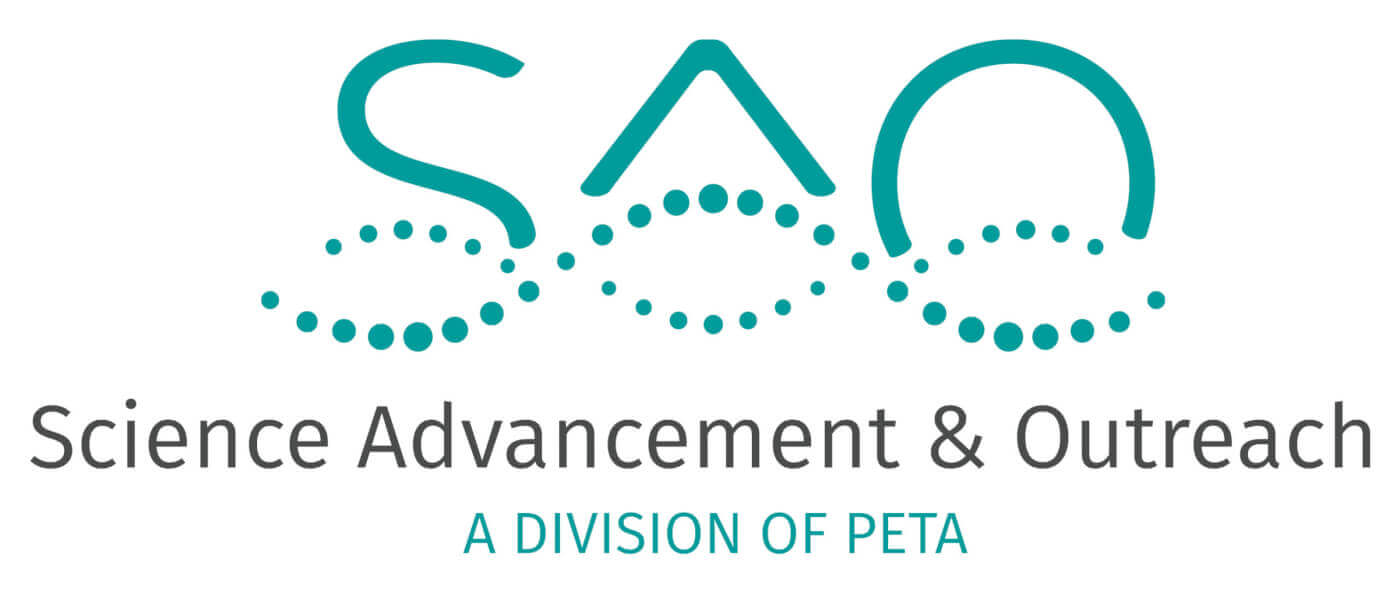Resources
Compassion and scientific breakthroughs aren’t mutually exclusive. Good science and sound ethics can propel us toward the shared goal of better health.
Reference Library →
View our library of critical publications discussing animal experimentation.
The Science of Animal Sentience →
Resources demonstrating the evidence for sentience in non-human animals.
Responses to Government Requests for Information →
PETA’s Science Advancement & Outreach division submitted comments to publicly issued requests for information by the National Institutes of Health and other government agencies.
Animal Methods Bias Resources →
SAO is part of a task force addressing animal methods bias.
Scientific Critiques
- PETA’s Research Modernization Deal
- Animal Sentience and Emotions: The Argument for Universal Acceptance
- Critique: Genetically Modified Mice for the Study of Human Health and Disease
- Critique of Shreesh Mysore’s Attention Selection Experiments in Owls
- Critique of the Use of Animals to Make Blood Pressure Health Claims, in the Form of a Letter to the Taiwan Food and Drug Administration
- Modernizing Cancer Research
- Review of Neuropsychology Experiments on Rhesus Macaques at the National Institutes of Health
- Review of Maternal Deprivation Experiments on Primates at the National Institutes of Health
- The Invalidity of the Forced Swim Test
Informative Online Resources
- Experiments on Animals Don’t Help Humans Who Struggle With Addiction
- Vivisectors’ Russian Roulette: The History of the Polio Vaccine
- Anxiety disorders
- Attention-deficit/hyperactivity disorder (ADHD)
- Depressive disorders
- Obsessive-compulsive disorder (OCD)
- Post-traumatic stress disorder (PTSD)
- Schizophrenia
Podcasts
- Jamie All Over: Scientist Calls Out Animal Testing
- Taboo Science: Animal Testing (with Dr. Katherine Roe & Dr. Emily Trunnell)
- Are there Alternatives for Using Animals in Research & Why Not Consider Them? With Neuroscientist Dr. Katherine Roe
- PETA’s Fight for a Modern, Cruelty-Free Approach to Science
- Einstein’s Insanity Defines NIH Approach in Its Failed War on Cancer
- PETA Sues NIH to End Useless Animal Tests and Modernize Science
- PETA’s Vision: Science That’s Modern, Cruelty-Free, and Gets Results
- More Scientists Agree With PETA on Forced Swim Tests
- A New Year’s Resolution for the Animals
- The Killing Labs: A Researcher Finds Her Truth
- Stop Importing Endangered Monkeys
- PETA Uncovers Monkey-Transport Scandal, Threat to U.S. Public Health
- Loose Monkeys Sink Experimentation? The Public Health Risk of Monkey-Transport Exposed
- On World AIDS Day, a PETA Scientist Remembers the Monkeys Who Have Died in Futility
Documentary
Three PETA scientists were featured in the documentary film Test Subjects, discussing how they left animal laboratories in order to advocate for better, animal-free science. Their experiences offer a searing critique of the current status quo, in which experiments on animals are still considered the gold standard—regardless of their pervasive failure. In fact, 90% of basic research fails to lead to any human therapies within 20 years and 95% of all new drugs—despite having passed safety and efficacy tests in animals—fail in human trials. Nevertheless, young scientists are still being pushed into conducting experiments on animals—but scientists at PETA are pushing back to let students know they don’t have to compromise their ethics in order to become scientists, doctors, or veterinarians.

